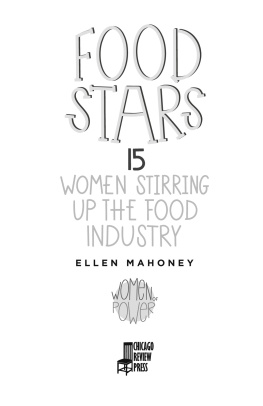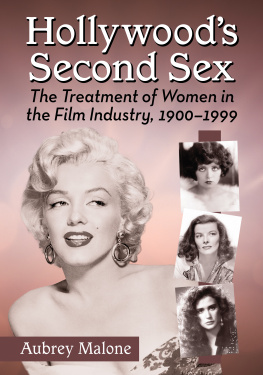Gaslighted
Gaslighted
How the Oil and Gas Industry Shortchanges Women Scientists
Christine L. Williams

UNIVERSITY OF CALIFORNIA PRESS
University of California Press
Oakland, California
2021 by Christine L. Williams
Library of Congress Cataloging-in-Publication Data
Names: Williams, Christine L., 1959 author.
Title: Gaslighted : how the oil and gas industry shortchanges women scientists / Christine L. Williams.
Description: Oakland, California : University of California Press, [2021] | Includes bibliographical references and index.
Identifiers: LCCN 2021016032 (print) | LCCN 2021016033 (ebook) | ISBN 9780520385276 (hardback) | ISBN 9780520385283 (paperback) | ISBN 9780520385290 (ebook)
Subjects: LCSH: Oil industriesUnited StatesEmployees. | Gasoline industryUnited StatesEmployees. | Women earth scientistsUnited States. | Sex discrimination against womenUnited States.
Classification: LCC HD 8039. O 52 U 69 2021 (print) | LCC HD 8039. O 52 (ebook) | DDC 331.4/8655dc23
LC record available at https://lccn.loc.gov/2021016032
LC ebook record available at https://lccn.loc.gov/2021016033
Manufactured in the United States of America
30 29 28 27 26 25 24 23 22 21
10 9 8 7 6 5 4 3 2 1
CONTENTS
ACKNOWLEDGMENTS
I am grateful to the women of PROWESS who inspired this study. Although they sought me out for my expertise, I ended up learning a great deal from them. I also thank the geoscientists and engineers who agreed to talk to me over the years. I sincerely appreciate their willingness to share their insights and experiences with me during difficult times.
My debt to Chandra Muller is huge. She convinced me to take on this project and was enthusiastic from the start. I have enjoyed our collaboration over the decade, as well as our friendship. A number of graduate students worked with us on the design and development of this project, including Jessica Dunning Lozano, Kristine Kilanski, Samantha Simon, and Amanda Bosky. I thank them for their many contributions to the project.
I presented parts of this work at the American Sociological Association meetings, at the Southern Sociological Society, and at a conference on the future of work in Queensland, Australia. Thank you to Toni Calasanti, Michelle Brady, and Gillian Whitehouse for arranging those visits and for their valuable feedback on my work. Parts of chapter 5 appeared as The Gender of Layoffs in the Oil and Gas Industry, in Research in the Sociology of Work (2017), in a special volume edited by Arne Kalleberg and Steven Vallas.
I am grateful for the helpful and encouraging feedback I received from brilliant sociologists Allison Pugh, Adia Harvey Wingfield, Steven Vallas, Jane Collins, and Jennifer Glass. Martin Button helped me figure out what I wanted to say and how best to say it. Profound thanks to Naomi Schneider, executive editor at UC Press, for her support from the very beginning.
As most of this book was written during the pandemic, I am grateful for Zoom. I looked forward to weekly family gatherings with my parents, Bunnie and Clyde Williams, my sisters and their partners, Cathie and YT Martinez, and Karrie Williams and Mark Jakusovszky, and my nieces Colleen and Claire Hunt. They cheered me every step of the way. While finishing the book, Fem(me) Sem meetings with graduate students Cait Carroll, Thatcher Combs, Shannon Malone Gonzalez, Katie Rogers, Patrick Sheehan, and Erika Slaymaker reminded me why sociology matters. Weekly happy hours with Jim Jasper, Mary Waters, and Deb Umberson kept me, well, happy. And last but never least, thanks as always to Martin, for making everything easier.
CHAPTER ONE
Gender, Geology, and the Oil and Gas Industry
In November 2008, I received an email from the Professional Organization of Women in Earth Sciences, or PROWESS. They needed a statistical consultant and they found me, a University of Texas sociologist who specializes in the study of gender and work. Members of PROWESS had just completed a survey of women geoscientists to find out why they were leaving their lucrative jobs in the oil and gas industry. They needed an expert to help them analyze the results.
Unbeknownst to them, I had no background analyzing survey data.
Unbeknownst to me, I was about to embark on a 10-year journey to answer their question.
The first thing I did when I received the email was to forward it to my colleague Chandra Muller, who really is an expert in survey data analysis. She quickly ascertained that their survey could not address the questions they were asking. Geoscientists had designed the survey after all, not social scientists. They omitted key questionslike gender, for exampleand they did not keep track of who responded to the survey. Nevertheless, I was intrigued and got caught up in their quest for answers. The women of PROWESS had opened up a fresh portal into some of the most enduring puzzles in the sociology of gender.
Why have some industries made strides toward gender equality while others remain stubbornly male-dominated?
Why is it taking so long for women to make inroads into scientific careers?
Why do high-paying jobs employ so few women?
What blocks womens ascent to corporate power?
Oil and gas is one of the largest, most lucrative, and most politically powerful industries in the world, yet it employs very few women. The industry lags behind virtually all others in measures of gender diversity. Women make up one-fifth of the industrys overall labor force, and they hold fewer than 15 percent of technical roles and very few leadership positions. In 2018, only one woman occupied the CEO position in a publicly traded oil and gas company, Vicki Hollub at Occidental Petroleum (Catalyst 2019; IHS 2014; Rick, Martn, and Lonski 2017).
The mission of PROWESS was to change that. PROWESS was a special interest group of the American Association of Petroleum Geologists, or AAPG. AAPG is a professional association with over 35,000 geoscientists working for the oil and gas industry in over 130 countries. On the AAPG website, the PROWESS mission was stated as follows:
The mission of PROWESS is to increase participation and advancement of women in Earth sciences and the Energy Industry, with an emphasis on education, outreach, support, leadership development, and ultimately retention. PROWESS will interact
AAPG cultivates close ties to the energy industry (a euphemism for oil and gas). Exxon/Mobil, Chevron, Shell, and British Petroleumthe so-called super majorssponsor the Association, along with a cascading array of national companies (Saudi Aramco, Pemex), independent producers (Conoco-Phillips, Marathon, Occidental), and service companies (Schlumberger, Bechtel). These corporations and many others exhibit at the AAPG annual conventions, where they market their services and recruit geoscientists to work for them.
These companies employ geoscientists to find oil and gas. Geoscientists use computer modeling, seismic data, and historical records to predict the size and location of oil and gas deposits in the earth. In the big companies, they typically work on teams with engineers, who design and build the actual rigs. Geoscientists decide where to drill or hydraulically fracture the earth, but they rarely travel to oil fields or offshore drilling platforms. Most geoscience professionals are office-based, and in the United States, most work out of corporate headquarters in Houston, Texas, the nations unofficial oil capital.





